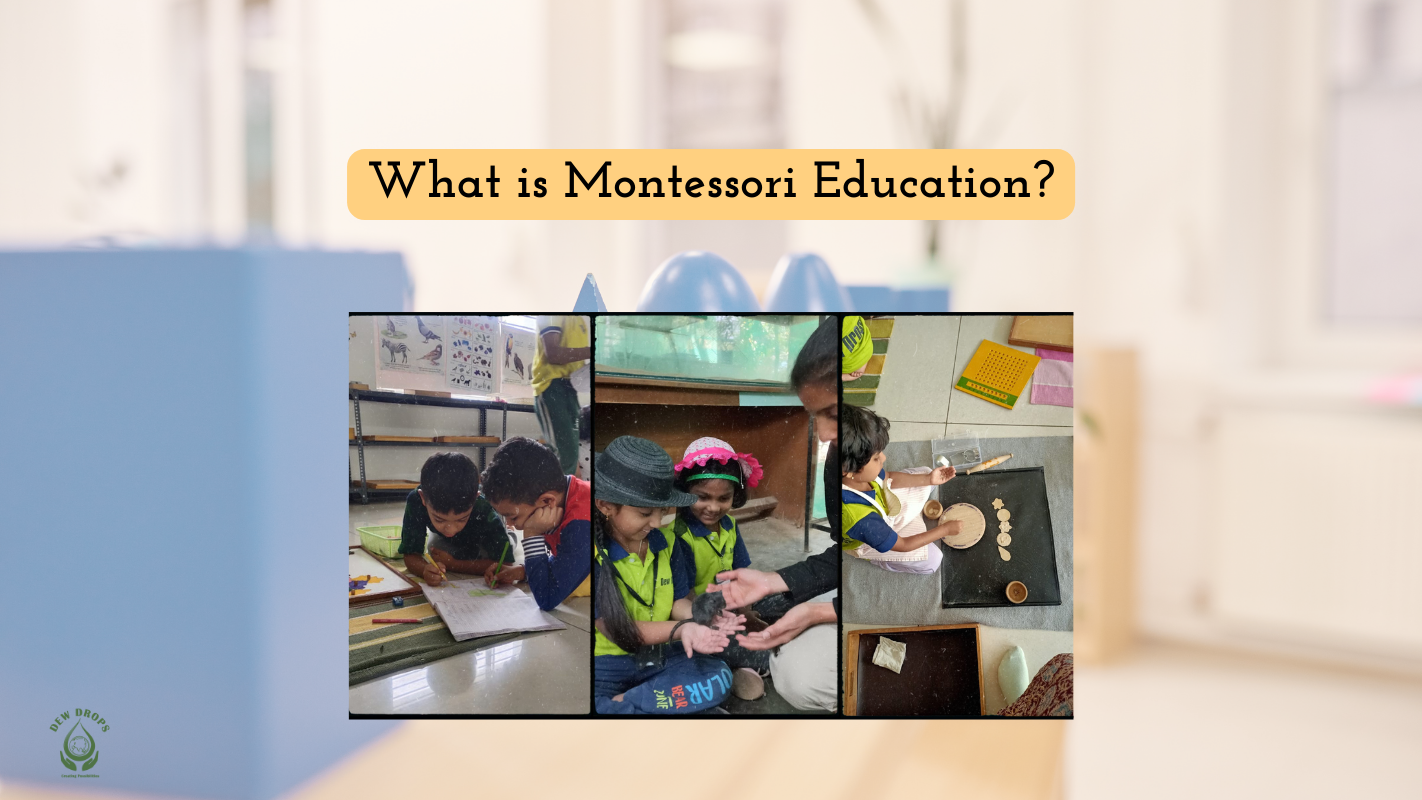Montessori Education: Nurturing Independent and Lifelong Learners
In the realm of education, the Montessori method stands out as a unique and influential approach that prioritizes individualized learning, independence, and the holistic development of children. Developed by Dr. Maria Montessori, an Italian physician and educator, in the early 20th century, Montessori education has gained global recognition for its child-centered philosophy and emphasis on self-directed exploration. In this blog, we delve into the fundamental principles and key elements of Montessori education, shedding light on how this approach nurtures independent and lifelong learners.
Child-Centered Philosophy:
At the heart of Montessori education lies a deep respect for the child as an individual. The approach recognizes that children are naturally curious, capable, and possess an innate drive for learning. Rather than being passive recipients of knowledge, children in Montessori classrooms are active participants in their education, empowered to explore, discover, and construct their own understanding of the world.
Prepared Environment:
A distinctive feature of Montessori education is the creation of a carefully prepared environment. Classrooms are designed to be spacious, orderly, and aesthetically pleasing, with a wide range of hands-on learning materials and activities. Each material is thoughtfully curated to foster specific skills and concepts, encouraging independent exploration and problem-solving. The environment is structured to promote freedom of movement, allowing children to choose activities that align with their interests and developmental needs.
Self-Directed Learning:
Montessori education places great emphasis on self-directed learning. Children have the freedom to choose activities from the prepared environment based on their individual interests and abilities. They engage in uninterrupted periods of work, immersing themselves in activities of their choosing for sustained periods. This fosters concentration, self-discipline, and a love for learning. Teachers serve as guides, observing and facilitating the child’s learning journey rather than imposing rigid instruction.
Mixed-Age Classrooms:
Montessori classrooms typically consist of mixed-age groups, spanning a three-year age range. This intentional arrangement promotes a sense of community, collaboration, and peer learning. Older children act as mentors and role models for younger ones, while younger children are inspired by observing the work of their older peers. This dynamic fosters social development, empathy, and cooperation, creating a supportive and inclusive learning environment.
Individualized Education:
Recognizing that each child has unique needs and interests, Montessori education emphasizes individualized instruction. Teachers carefully observe and assess each child’s progress and tailor their guidance and materials accordingly. This personalized approach allows children to progress at their own pace, ensuring that their learning experiences are appropriately challenging and fulfilling. Individualized education promotes a deep sense of accomplishment, self-confidence, and a lifelong love for learning.
Holistic Development:
Montessori education goes beyond academic achievement; it nurtures the holistic development of children. The approach recognizes the interconnectedness of cognitive, social, emotional, and physical growth. Alongside academic subjects, Montessori curriculum includes practical life skills, sensorial exploration, cultural studies, and arts. Children develop a strong sense of responsibility, independence, critical thinking skills, and respect for themselves, others, and the environment.
Conclusion:
Montessori education stands as a transformative and influential approach to early childhood and elementary education. By embracing a child-centered philosophy, creating prepared environments, fostering self-directed learning, promoting mixed-age classrooms, offering individualized education, and nurturing holistic development, Montessori education empowers children to become independent, confident, and lifelong learners. Through the Montessori method, children develop not only academic excellence but also a deep love for learning, enabling


A beautiful article which clearly states about #Montessori education.
A detailed description which enables the readers to get a clear picture about the methodology and benefits of this education.
Thank you for your kind words! We’re thrilled that you found our article on Montessori education beautiful and informative. Our goal was to provide a detailed description that would help readers gain a clear understanding of the methodology and benefits of this unique educational approach. We believe in the power of Montessori education to nurture children’s holistic development, foster independence, and ignite a lifelong love for learning. We appreciate your positive feedback and invite you to explore more of our articles to delve deeper into the world of Montessori education.
The ideal environment for the child to explore him/ her self . Any child udergoing this method of learning will be acquiring exceptional qualities and would be developing life skills and knowledge in 360 degrees .
Thank you for your insightful comment! We wholeheartedly agree that the Montessori method provides an ideal environment for children to explore and develop themselves. The child-centered approach fosters exceptional qualities, promotes the acquisition of life skills, and encourages holistic knowledge development in a 360-degree manner. At Dew Drops Montessori, we are dedicated to creating a nurturing and enriching environment where children can thrive, grow, and reach their full potential. We appreciate your recognition of the benefits of the Montessori method.